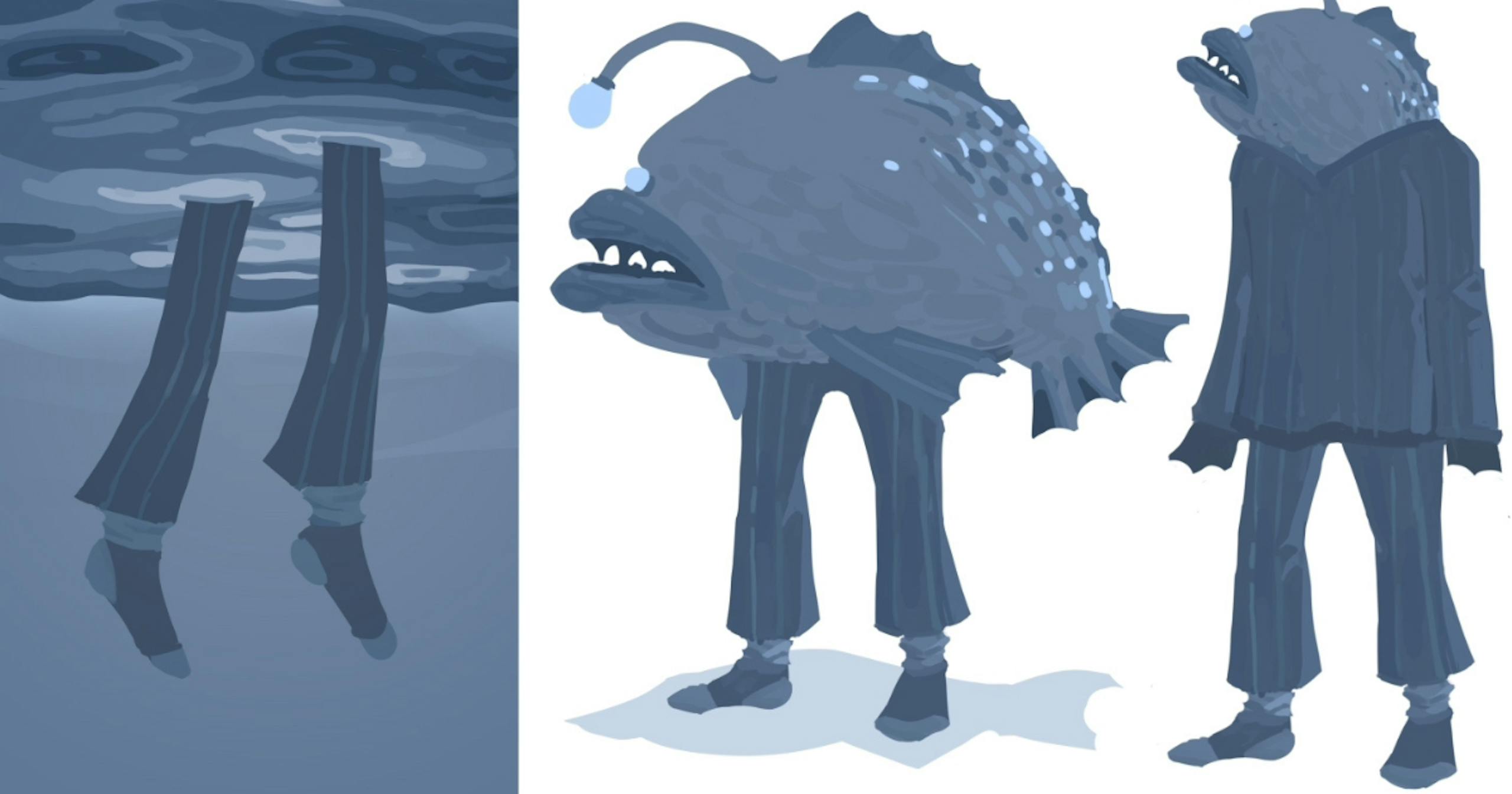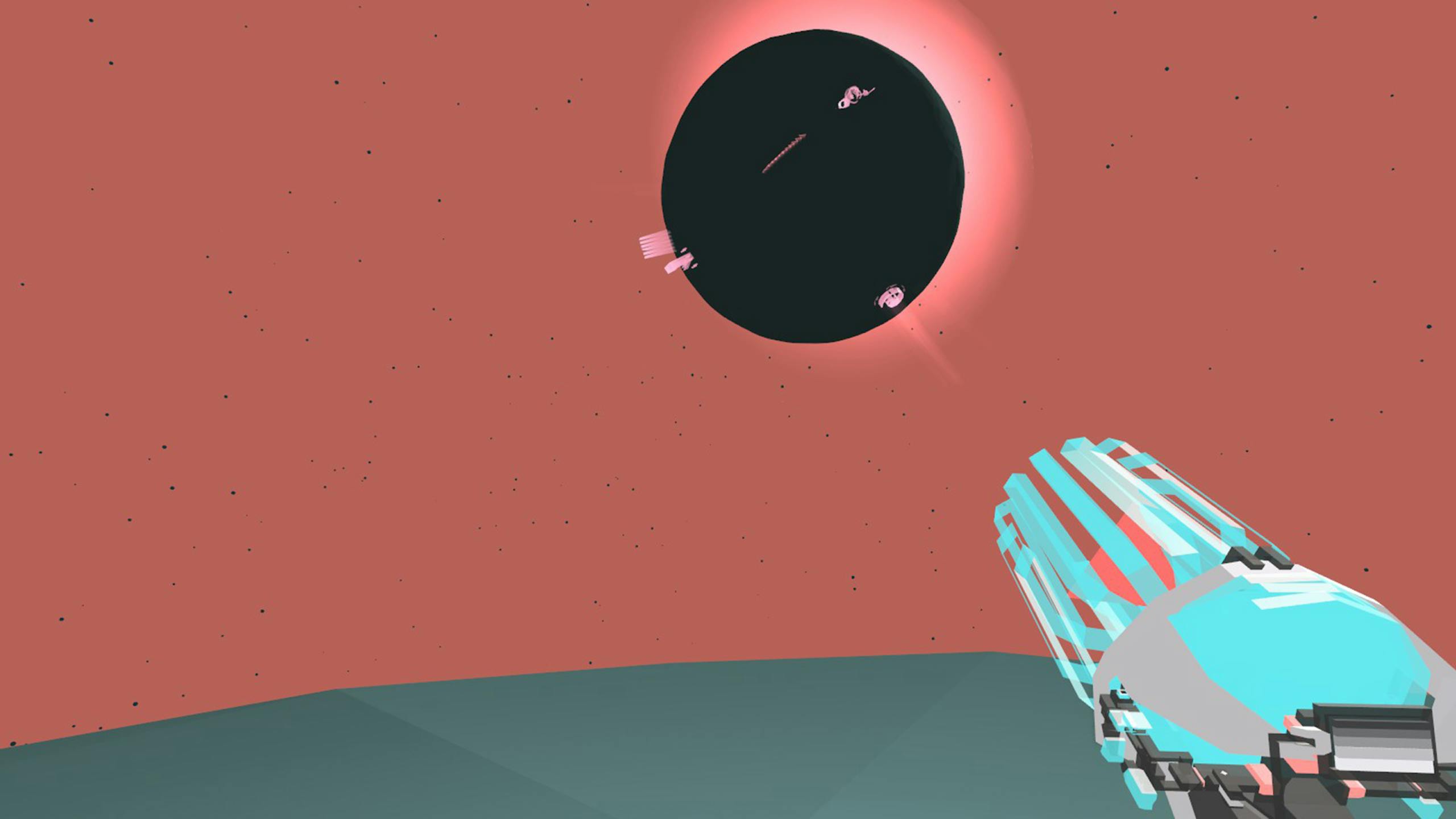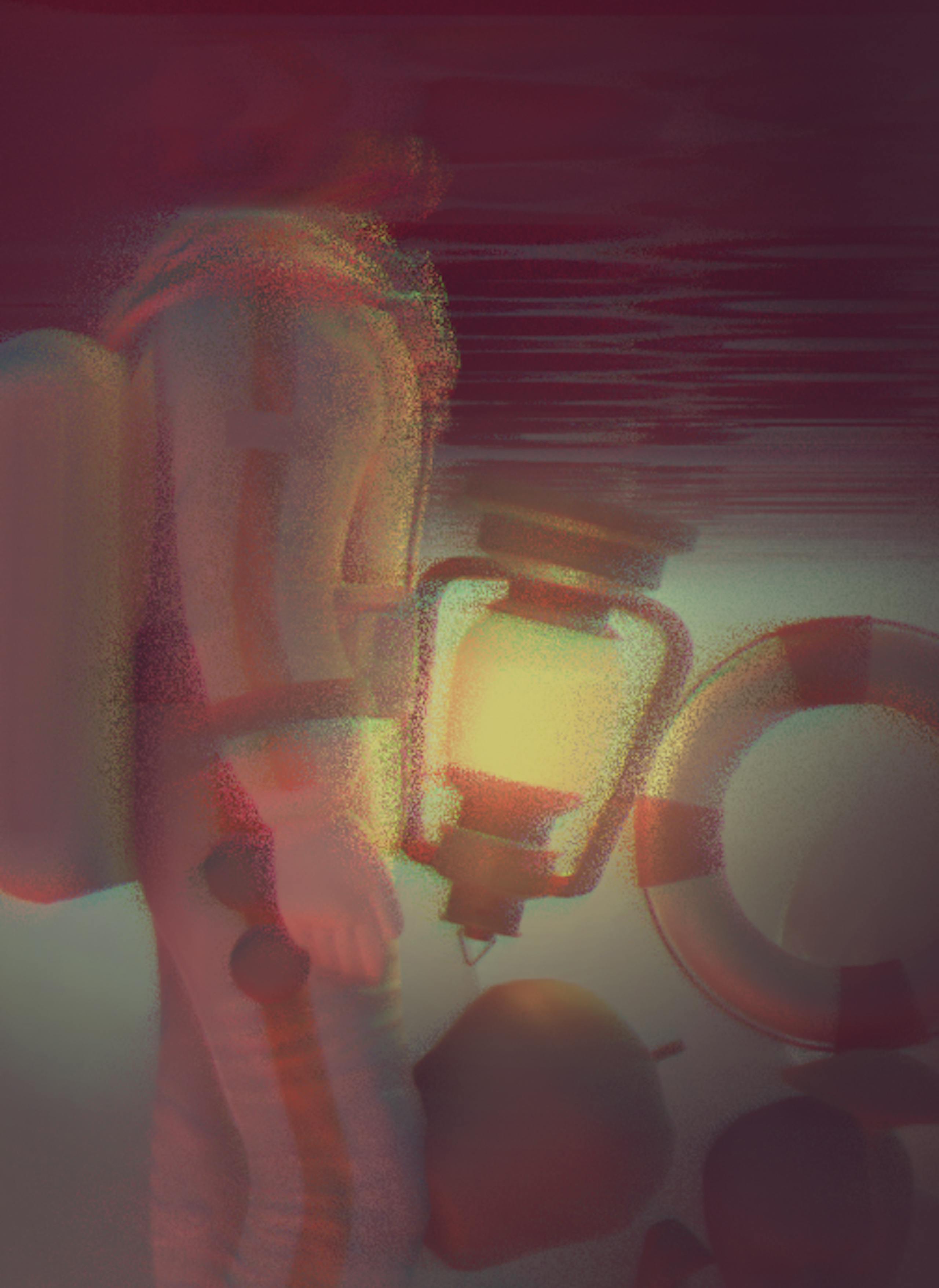
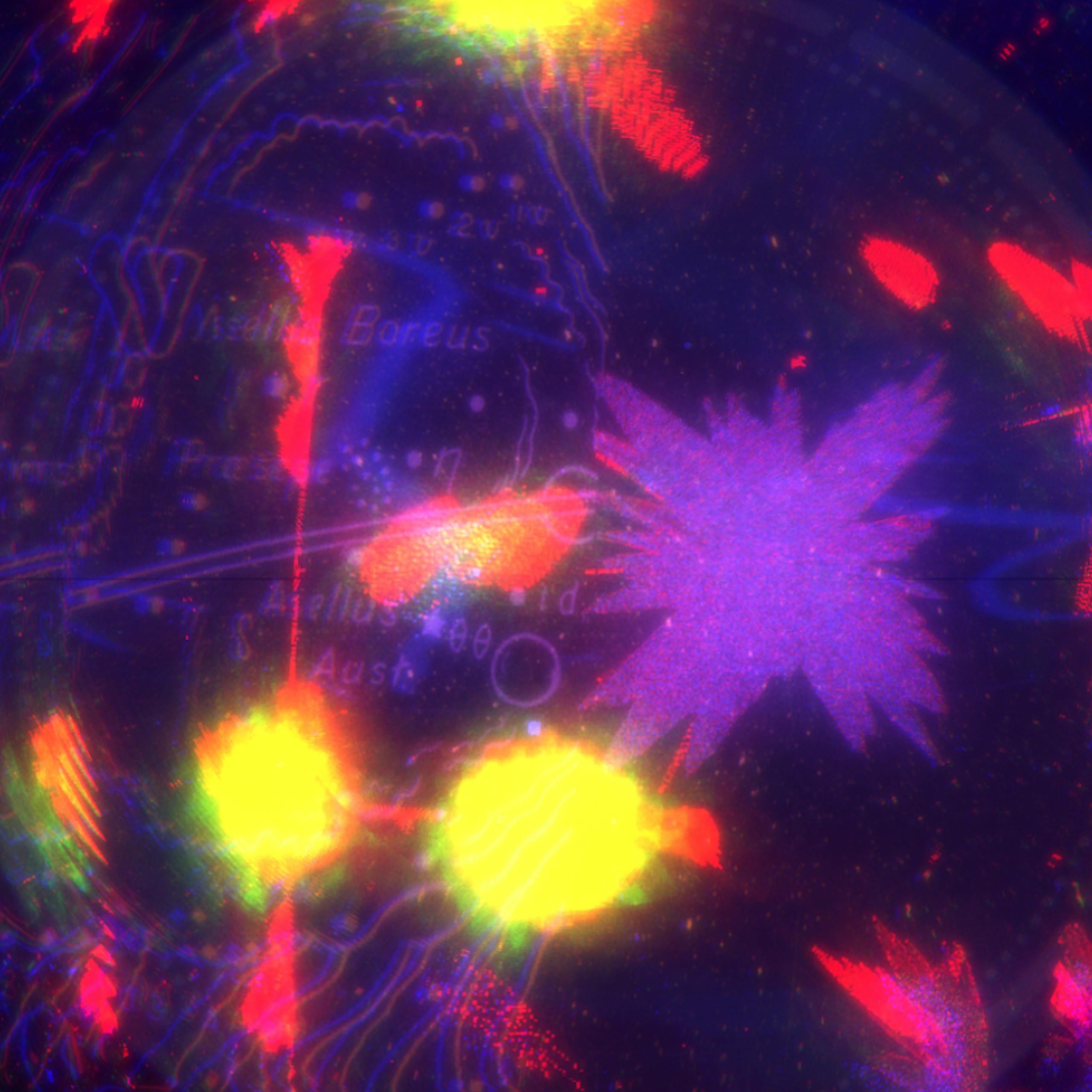
Screenshot of one of the initial iterations of the game space. Courtesy Fern Goldfarb-Ramallo
The Unknown Through Play and Pleasure: an Interview with Fern Goldfarb-Ramallo about We Are Poems
For the second in our series of interviews with the protagonists of Game Collection Vol. 2, curated by Pietro Righi Riva and presented on the occasion of the 23rd International Exhibition, Giulia Trincardi interviews the Argentinian game designer Fern Goldfarb-Ramallo.
Play is an activity common to all human beings as well as some species of the animal kingdom, but other than the relationship that it may have with learning, it remains a kind of mystery. It is not an activity that is productive in itself (or it doesn't need to be) and it often reconfigures spaces and social norms in unexpected ways. Why do we play? That is the question that the academic community has been asking itself for years; but while for a long time the answer was “for fun,” more recent philosophers have suggested that the reason may be rather the search for pleasure (a more multi-faceted concept) and that playing is not just an activity but potentially an attitude to reality.
Playing and pleasure have a shared subversive potential. When the giant home furniture company IKEA asked people to stop organizing secret hide-and-seek games with thousands of participants in its stores, it wasn't just interrupting a “joke”, but trying to prevent the use (and re-signifying) of its spaces that was making a mockery of the intended product consumption. If we play hide-and-seek in a large shop, is it still a large shop? If we play a game of tag in a police station, how does that change the significance of the place?
The demand for pleasure is historically a necessary passage in the process of liberation and self-determination of any minority identity: from the affirmation of non-heteronormative (or cisnormative) sexual pleasure coinciding with the early feminist movements and the Stonewall protests, to the demands today for pleasure in the broader sense of exploration of the unknown—of the world, of the other and of oneself.

Fern Goldfarb-Ramallo, portrait by Kay Hues
In the context of the 23rd International Exhibition Unknown Unknowns. An Introduction to Mysteries, with the second edition of the Game Collection, curated by Pietro Righi Riva, Triennale Milano is presenting the interactive work We Are Poems, designed by artist and designer Fern Goldfarb-Ramallo, which transports the public into a cosmo-community of particles that manifest an existence of shared pleasure in splendid indifference to the opinions of others.
We spoke with Fern Goldfarb-Ramallo about playing, pleasure, subversion and the importance of belonging to a community that takes care of its parts.
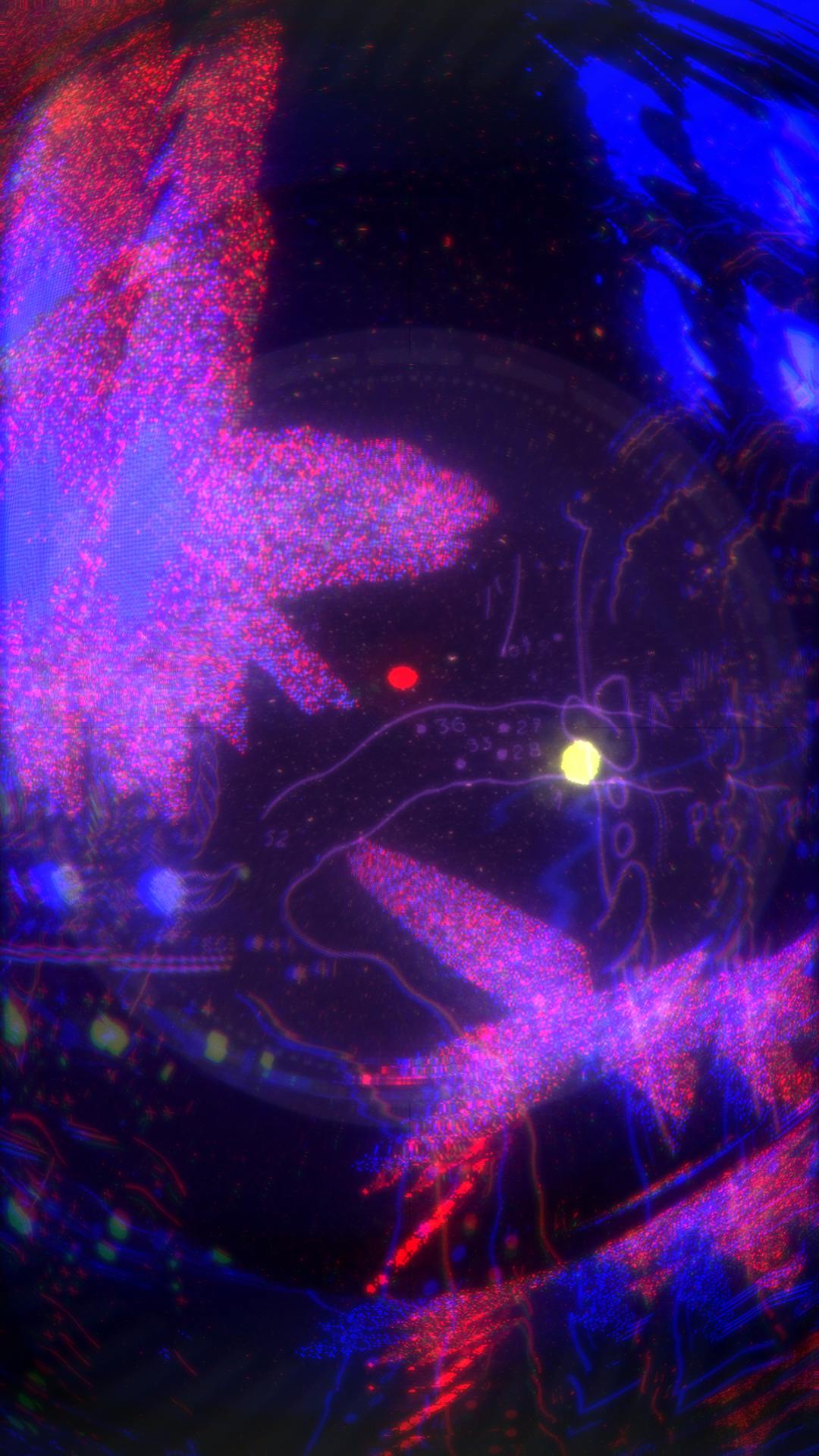
Screenshot of one of the initial iterations of the game space. Courtesy Fern Goldfarb-Ramallo
Hi Fern, thanks for joining. I must confess that while I was playing We Are Poems, I "lost" myself among its colors, sounds and modes of interaction, as if I was on another planet. So first of all: thank you! Did you already have a clear vision of the game when you started working on it? Or was it more of a process?
It was definitely a process: I created different versions of the game. I had an initial idea of the interactions and materials that I wanted to work with, and starting from that I experimented with different things and different ways of navigating the world of the game, but it all really started to take shape towards the end. Perhaps you played a different version from the final one.
Yes! I notice that you added more musical elements in the last version.
Yes, I definitely added more of a musical aspect, which was actually part of the initial process. I had in mind the kind of sensation that I wanted the space to evoke, and I wanted voices and things like that. While I was recording the audio with my friend Eve, we ended up improvising music; I had asked Eve to speak a language without meaning, to evoke an idea of universality, and Eve started singing in that same invented language, remaining “in character”. Those songs were so good that in the end I decided to make them a central part of the project.
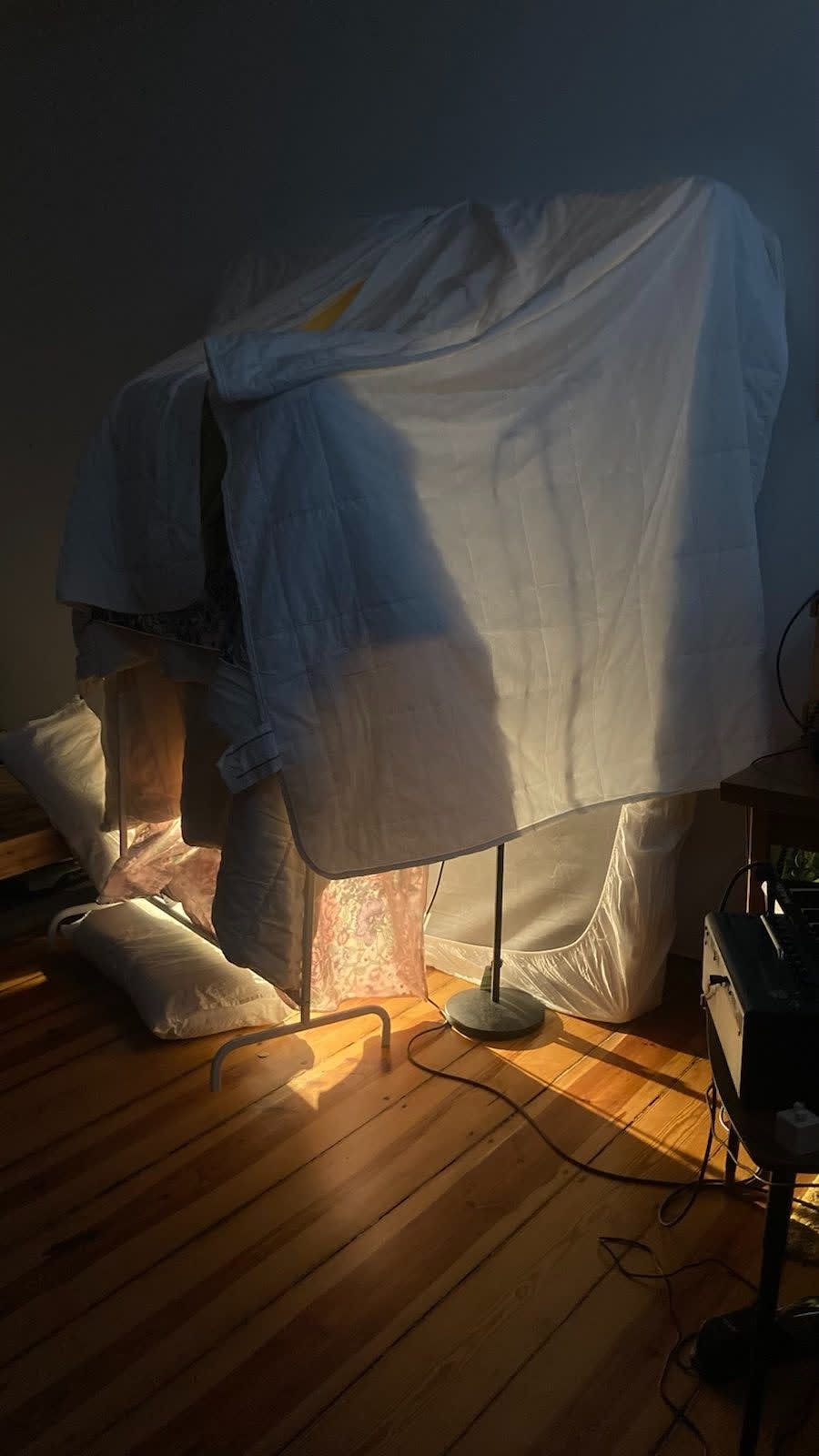
The "recording booth" that Fern Goldfarb-Ramallo built at home to record the voices of We Are Poems with Eve Hessas. Courtesy Fern Goldfarb-Ramallo
The songs have something mysterious about them. Listening to them I seemed to know those voices and those words, even though they weren't real. I started wondering: "Maybe in a previous life I lived on another planet and this was the language that I spoke there..."
Ah, yes, you're right, it's that sort of feeling in a way! Actually, Eve was talking Danish at a certain point, or another Scandinavian language.
I lived in Denmark!
Well there you are! Perhaps that's why you recognized it!
We Are Poems is like a powerful echo of pleasure that explodes in every corner of a mysterious cosmos. But while the voices are human-like, there is no interaction with human bodies. What made you decide not to include people in the game?
In my works, I always gravitate towards playful and tactile experiences. Part of the idea that inspired We Are Poems is a technology called powder toy, or falling sand game, that consists of a series of games and toys based on particles simulated in real time, so that when you touch them you get movements, reactions and “chemistry".

A GIF animation recorded by powder toy, a particle simulation open source tool that the creator used as a reference for the game mechanics. Courtesy Fern Goldfarb-Ramallo
So I took some of the technical elements that I created these simulations with and I applied them in an abstract sense. But right from the start there was the idea that the particles were actually people. Or rather than people, they were characters that you interact with. By adding the voices, I wanted to create the suggestion of interacting with a community, that was obviously inspired by the idea of the queer community that I encountered in Berlin, and by the idea of creating something beautiful from the darkness and the void which we live in as queer people in a heteronormative society. That's why, in a way, there is interaction with the bodies: they're just represented in a different way, a cosmic way.
I also liked transmitting the idea of coming into contact with a community that already existed, regardless of one's gaze or one's opinion. You can peer inside and hear these voices that whisper and interrupt each other or change when you interact with them—while remaining guests. You have the opportunity to see this community, but as external observers.
The idea of bodies visualized in an abstract, playful way is interesting, because present-day society doesn't recognize the right of all bodies and all identities to experience life and pleasure in the same way. So is it liberating to contemplate a community without the judgements that exist in real life?
Yes, absolutely. One of the initial descriptions of the game included the concept that these entities “can also do very well without you: they live their existence irrespective of your opinion.” So that's why it's possible to interact with them, without changing them.
The methods of interaction are very playful. I'm not shooting missiles but rather I'm tickling a constellation. And gaming, like pleasure, can be a subversive activity. The theme of the Game Collection is “Unknown Unknowns”; do you think that playfulness is the right attitude to tackle what we don't know?
I think that it is very natural and I think that there's something very centering in attaining a mental state in which you accept that you don't know what will happen: that's where the relationship with pleasure emerges, when we are presented with something that is unknown but that reacts to our actions. The pleasure of exploring a body or a system of particles like that in We Are Poems, involves experimenting with gestures and actions and seeing what reaction you provoke by changing your own behavior in order to obtain the best or most entertaining interaction.
It's a very natural process and it's the type of interaction that I'm interested in creating in my work: I'm interested in probing its limits. The thing that I like about computers is not so much that they allow me to produce hyper-realistic renders of an environment, but the fact that they can create moving images that react in an immediate way: the speed of the reactions invariably offers new forms of gaming. It's easier for a system to design discrete, distinct forms, but I'm interested in obtaining a more experimental feeling of fluidity.
Do you think that gaming could even be a tool for confronting what frightens us?
In theory, yes, but let me know if you find out how to do it in reality. Because we live in an age that's pervaded by fear. Gaming is a way to deal with what we don't know, but at the same time I wonder how much gaming would help to resolve the problems surrounding us, or the things that are uncertain by definition. Personally, if I have to confront something that frightens me, what helps me is remembering to maintain a state of openness, rather than gaming: even if I'm not sure what results I'll get, I try to calm the part of me that goes straight to the worst scenario. So really, let me know if you discover how to use gaming on a large scale in that way!
It would certainly be wonderful to discover that.
I hope it happens one day.
What does “unknown" mean for you as an artist?
I deal more with the unknown than with the known when I create, when I work and try to express something through any kind of electronic means. At times like that, when I'm trying to transfer the feelings that I'm experiencing or my life experiences into a song or an image, I learn to welcome, to accept the unknown. The moment that I shut the door on those things, the creative process will stop working.
Is it important to have a healthy relationship with the void that each of us has within us?
The unknown is something you need to welcome if you're an artist: at a certain point it's essential to do so.
You mentioned earlier the person you composed the sounds and songs for We Are Poems with: Eve Hessas. Can you tell me how your collaboration began?
Eve and I had become close friends when we were in Berlin and from the start, since it was a project based on our queer community, I knew I wanted to involve someone who was part of that. So Eve helped me to record the voices; Eve isn't a professional, but that didn't bother me: I wanted to involve someone who didn't work in that field, but who would approach the project with real playfulness.
For some time we've been doing musical improvisation together every week, getting ourselves into a playful state that helped me to recover the meaning of what I was doing. After completing an important project years ago, I found it difficult to rediscover that playful spirit, because I was completely burned out. When I started making music after the pandemic, or let's say after 2020 anyway, that playful element came back and I understood that there were other media forms that I wanted to explore and Eve was there with me. So there was a natural connection for this project.
You've chosen to give minimal instructions to players of the game. We see your hand at first, but then the game becomes pure exploration. Is the process of discovery intrinsic to the experience you want to offer?
Yes, absolutely. With every work that I create, I like to give back a sense of universality, to give pictorial instructions rather than language-based instructions. And the way that I explain the commands isn't random, either, but very deliberate: there are colors, there's a hand that isn't just any hand but a hand with painted nails, which tells you something about the person who is inviting you to play. In some way, this element also helps to establish the tone of the work and what those who decide to play We Are Poems can expect.
Video of one of the initial iterations of the game space. Courtesy Fern Goldfarb-Ramallo
The aesthetics and modes of interaction generally are also partly inspired by those in the first volume of Triennale's Game Collection; the interactions in that were minimal too. So when I was invited to take part in the second Game Collection, I knew that it wouldn't make sense to insert text to explain the commands. The mechanics of We Are Poems are still complex, in a way, but they're accessible. Instead of asking players to learn specific rules, I'm much more interested in making sure the interaction is accessible, and therefore inviting to as many people as possible.
Related events

